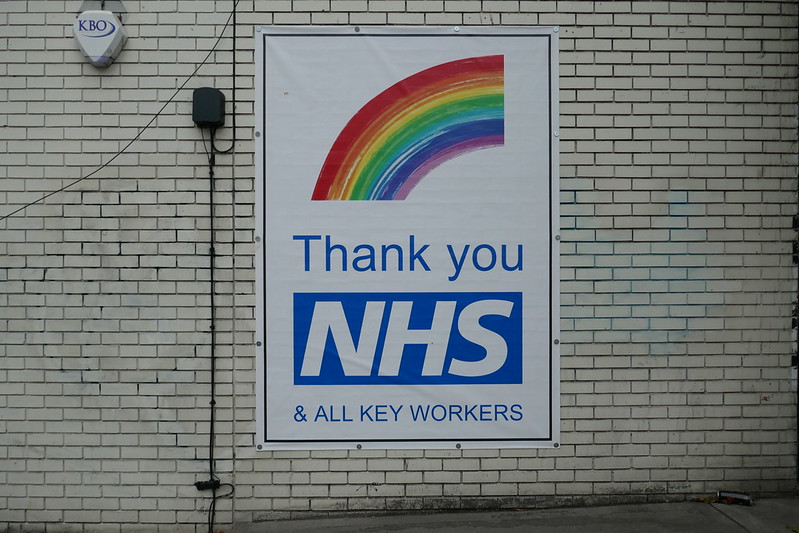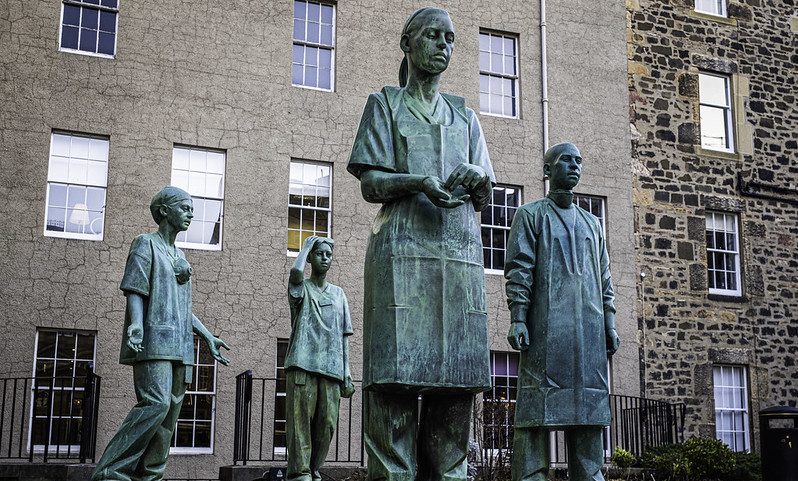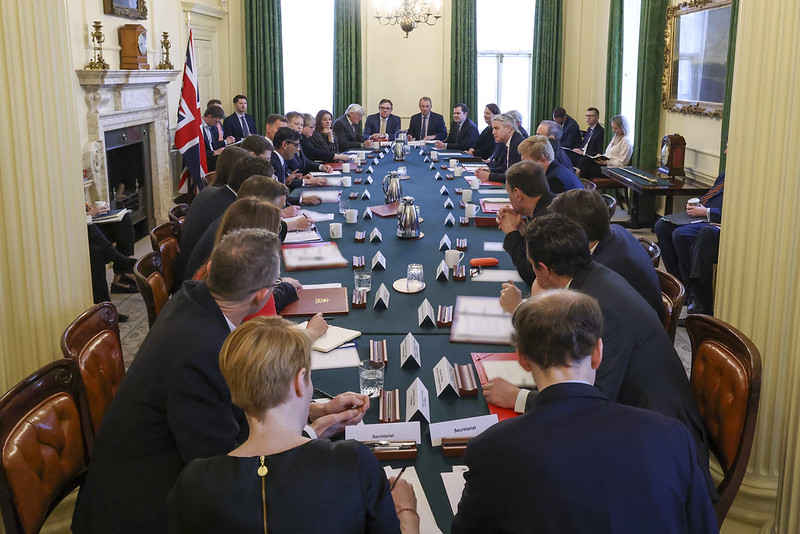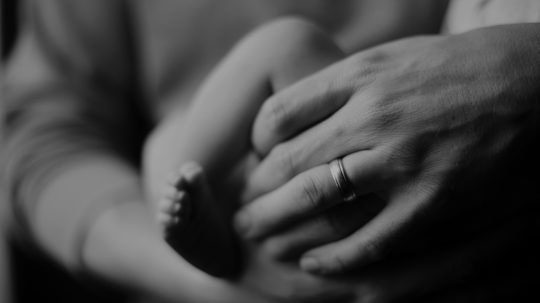At the turn of the new year, several rights-related bills were due to progress through Parliament. As we entered 2023, there were questions about the government’s planned Rwanda policy and speculation around whether the UK would withdraw from the European Court of Human Rights (ECHR). Now, as we enter 2024, we take a brief look back at the last turbulent twelve months.
Threats to the right to protest
On the day of the coronation of King Charles, 6 May 2023, dozens of people were arrested following the passing of the Public Order Act, which had been ushered through Parliament four days prior.
Included in the number arrested were eight protesters from the anti-monarchy group Republic, as well as several night safety volunteers – who were in fact affiliated with the Metropolitan Police. Following those arrests, members of the public, police officers and barristers gave evidence before the home affairs select committee, tasked with investigating the policing of protest in the UK.
Suzie Melvin, part of the Night Stars group and one of three volunteers arrested, gave evidence to the committee. Melvin stated: “As we entered the north of Soho Square, we were approached by a number of TSG [Territorial Support Group] vans and when we were approached by a number of officers, they told us that they were going to stop and search us.”
Melvin continued: “We did the best we could to try and explain who we were to the officers; they also searched the church that we base ourselves out of, and then we were taken in police vans, told we were being arrested and taken to Walworth police station.” The three volunteers were later released without charge.
Adam Wagner, barrister at Doughty Street Chambers and an expert in protest law, stated: “I am really concerned that it will have a chilling effect. I think the main reason is that you have these extremely widely drawn offences, particularly that of coming equipped for locking on. I think you’ve pointed out, [this] could include Sellotape, duct-tape, a lock, luggage straps – almost anything you could imagine, really.”
The Illegal Migration Bill
In December 2022, the High Court had ruled in favour of the government’s controversial Rwanda policy, which would seek to place a lifetime ban on migrants arriving on small boats and to deport them to a ‘safe third-party’ country.
The Rwanda Migration and Economic Development Partnership had been signed in April 2022 by then home secretary Priti Patel; however, towards the end of that year, many in the rights sector anticipated a new legal challenge in 2023.
In November 2023, the UK Supreme Court ruled the plan unlawful because of the potential risks faced by asylum seekers if sent to Rwanda. Within hours of the judgment being given, Prime Minister Rishi Sunak took to X (formerly Twitter) to announce that he would “stop at nothing” to ensure that the European Court of Human Rights would not be able to prevent people being deported to Rwanda under the Migration Partnership.
Following today’s ruling, I’m taking the extraordinary step of introducing emergency legislation to confirm Rwanda is safe.
I will not allow a foreign court, like the European Court of Human Rights, to block these flights.
Here’s the plan in full ⬇️
1/5 pic.twitter.com/6MVqYWS65O— Rishi Sunak (@RishiSunak) November 15, 2023
Following the social media flurry, Rwanda’s minister of foreign affairs Vincent Biruta released a statement underlining its own commitment to international law. Biruta stated: “Without lawful behaviour by the UK, Rwanda would not be able to continue with the Migration and Economic Development Partnership.”
On 5 December, the government signed a new treaty with Rwanda as well as the Safety of Rwanda (Asylum and Immigration) Bill the next day. This new ‘formal’ treaty binds the two countries under international law, which means it will be subject to scrutiny by Parliament under the terms of the Constitutional Reform and Governance Act 2010. Under this Act, the government is required to give Parliament the treaty for 21 days, after which it can be ratified, unless the Commons objects to it.
The Illegal Migration Bill includes a statement from the home secretary that he “cannot certify” it as being compatible with the ECHR. For some, the most alarming aspect is clause 5, which allows ministers to decide whether to comply with any interim measures issued by the Strasbourg court relating to removals to Rwanda and preventing UK courts from intervening.
However, the Bill allows claims under section 4 of the Human Rights Act (HRA) and certain challenges based on an individual’s particular circumstances. Section 4 of the HRA says that if a higher court (such as the High Court, Court of Appeal or Supreme Court) considers that part of an Act of Parliament is incompatible with human rights, it can make a declaration of incompatibility.
The next barrier the government faced was securing aircraft to deport migrants arriving on small boats. According to the Sunday Times, the Ministry of Defence is understood to be reluctant to use its aircraft, such as the Voyager passenger jet, for the expulsions. It has also emerged that the Ministry of Defence airbase designated as the departure centre will now require investment of up to £20m for extra security fences to keep protesters out.
Home secretary James Cleverly confirmed that the partnership will have cost almost £400m by 2027 – the same amount it would cost to build 2,131 new social homes.
Celebrating 75 years of the NHS
Summer brought the 75th anniversary, on 3 July, of the National Health Service (NHS), which delivers healthcare to UK residents, free at the point of delivery.

Credit: Duncan Cumming
The service has faced adversity throughout the 75 years and continued to encounter challenges this year, in terms of strikes, pay and the safety of NHS buildings.
Despite NHS funding being 11.1% higher now than in 2019–20, the NHS is, on average, experiencing less budget growth. According to the Institute for Fiscal Studies, the NHS would require around £4bn of additional funding in 2024–25 to undo the remainder of the real-term hits to its spending plans.
The NHS was also affected by the RAAC scandal, in which reinforced autoclaved aerated concrete (RAAC), which has a lifespan of 30 years, was found in NHS buildings. The number of hospitals in the UK that contain RAAC is currently unknown; however, in Scotland, more than 250 NHS buildings were flagged for potentially containing the material. In a letter from NHS England to a number of trusts, 27 NHS sites had been identified as containing RAAC, yet as of September only three of those sites had been able to rid the premises of the substance.
In an interview with the Guardian, Professor Philip Banfield, chair of the British Medical Association, warned ahead of July’s anniversary that the NHS is so fragile it may not survive to see its 80th birthday. “This government has to demonstrate that it is not setting out to destroy the NHS, which it is failing to do at this point in time,” he said. “It is a very common comment that I hear, from both doctors and patients, that this government is consciously running the NHS down. [And] if you run it down far enough, it’s going to lead to destruction.”
He continued: “You’ll struggle to find someone [among doctors] on the frontline who thinks otherwise, because that’s what it feels like.”
Banfield also described the funding of the NHS as a deliberate strategy by the government: “It was a conscious political decision to underfund and undervalue the NHS as a national asset and its staff – not just doctors but [staff] across the board.”
The Covid Inquiry begins…
On 28 June, the UK Covid-19 Inquiry officially began, with its first module hearing evidence on the country’s preparedness for a pandemic. The Inquiry heard how the UK preparedness was “wholly inadequate” and that a “legacy of austerity” had contributed to the strains the NHS was experiencing.
While bereaved families stood outside the building with photographs of their loved ones, the Inquiry heard how NHS staff had to use expired personal protective equipment (PPE) as it was predicted stocks would have depleted after two weeks.

Credit: Damien Walmsley
In this first module, the Inquiry reportedly rejected all 20 witnesses put forward by the Covid-19 Bereaved Families for Justice. In addition, it is understood that no witnesses from the group were allowed to give evidence for the second stage of the Inquiry, which focused on the political decision-making by the former government, led at the time by former prime minister Boris Johnson.
Giving evidence to the Inquiry in December, Johnson said he had changed his phone many times in recent years and never backed up his messages, that he was not advised to save WhatsApp messages from his phone, even after the Covid inquiry was set up, and that he has no messages remaining from the pandemic period.
It was a statement that would make national headlines, following the Covid-19 PPE WhatsApp Scandal which saw the publication of damning WhatsApp messages from inside Number 10. The Covid Inquiry is ongoing and will continue next year, when its aim will be to examine the impact Covid-19 had on healthcare systems, as well as the vaccine rollout, procurement and the care sector.
This year has seen an increase in public engagement with human rights, with important questions raised regarding the protection of people’s human rights in the UK and the advocacy needed for vulnerable groups. We enter 2024, however, with more questions than a year ago – and many are determined to get answers.





